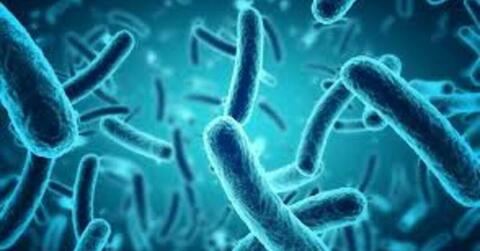New Jersey Department of Health (NJ DOH) officials announced they are investigating a possible cluster of Legionnaires’ disease cases in residents of municipalities across Passaic County and Bergen County.
RLS Media was told they are encouraging residents who develop symptoms suggestive of Legionnaires’ disease to seek medical evaluation.
According to NJ DOH officials, as of August 4, they have been notified of nine confirmed cases of Legionnaires’ disease among individuals residing in neighboring Passaic County municipalities and one additional case in a neighboring Bergen County municipality.
The onset of symptoms for these cases occurred between May 27 and August 1, and officials say reports were submitted to NJ DOH between June 6 and August 4.
NJ DOH is actively collaborating with the local health departments in Passaic and Bergen Counties to investigate these cases and any potential sources of infection.
In late July, officials said that NJ DOH alerted local health departments, healthcare providers, and other public health partners in the area regarding the elevated number of reported cases.
This is the same general region that experienced an increase in cases last winter.
According to officials, an investigation did not determine a common cause at that time. The current investigation is still ongoing.
“Early diagnosis is key to effectively treating Legionnaires’ disease,” said New Jersey Acting Health Commissioner Dr. Kaitlan Baston.
“Although the risk of contracting Legionnaires’ disease if you live in or have recently visited Passaic or Bergen counties remains low, individuals who develop pneumonia-like/respiratory symptoms should visit their health care provider immediately to be evaluated.”
NJ DOH officials said Legionnaires’ disease is a type of pneumonia (lung infection) caused by bacteria called Legionella.
It is important to note that symptoms of Legionnaires’ disease are similar to those of COVID-19 and other respiratory illnesses such as flu.
Symptoms can include fever, chills, cough, shortness of breath, chest pain, muscle aches, and headache. If Legionnaires’ disease is suspected, only tests ordered by a doctor can confirm the diagnosis, officials say.
Although Legionnaires’ disease is a serious illness, it is treatable with antibiotics.
As symptoms can take up to two weeks to develop, NJ DOH recommends that those who develop these symptoms within two weeks of visiting Passaic or Bergen counties seek medical attention.
It is rare for healthy people exposed to Legionella to develop Legionnaires’ disease.
However, people over the age of 50, especially those who smoke, or those with certain medical conditions, including weakened immune systems, chronic lung disease, or other chronic health conditions, are at increased risk for Legionnaires’ disease if exposed, but not transmissible from person to person.
According to NJ DOH, people can get Legionnaires’ disease by breathing in aerosolized (tiny droplets) water containing Legionella bacteria. Aerosolized water can come from cooling towers (used in air-conditioning systems for large buildings and industrial purposes), hot tubs, cooling water misters, decorative fountains, and plumbing systems.
Home air conditioning units (either central or in-window), officials said, do not use water to cool and are not a risk for Legionella growth.
In rare instances, individuals may also become sick when water containing Legionella is aspirated into the lungs while drinking (“goes down the wrong pipe”), particularly among those with swallowing difficulties.
NJ DOH officials stated they receive approximately 250-375 reports of Legionnaires’ disease each year and work closely with local health departments to investigate potential sources of infection.
Officials said investigations can be lengthy, and identifying the exact source is often challenging. Any potential sources found will be addressed and remediated to prevent further transmission.


